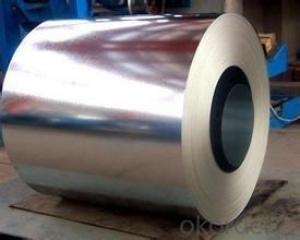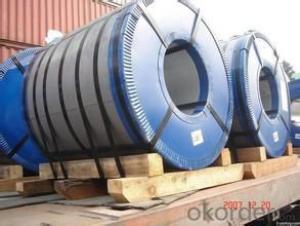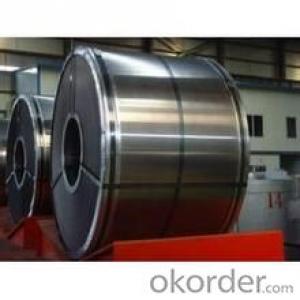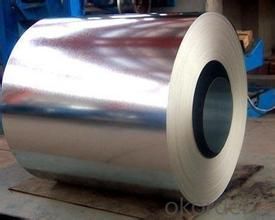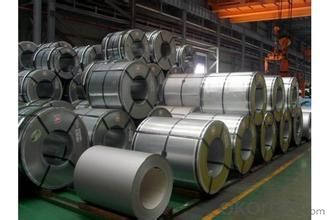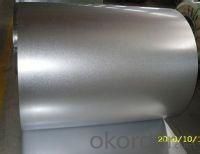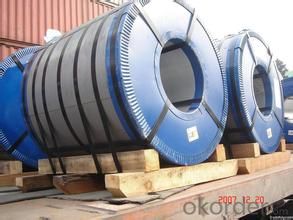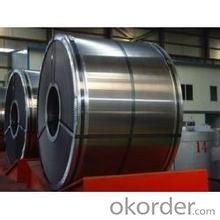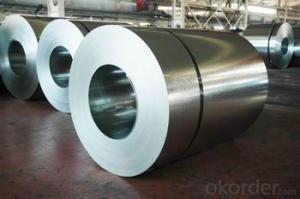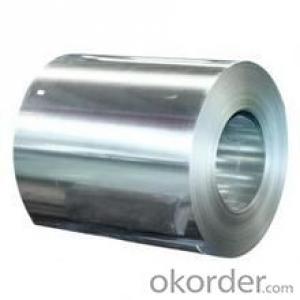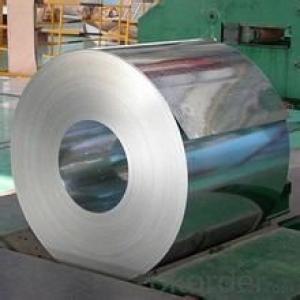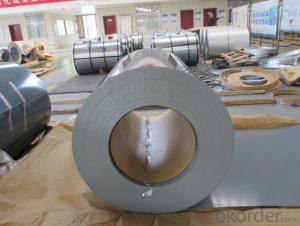hot-dip galvanized steel coil SGCC in China
- Loading Port:
- China main port
- Payment Terms:
- TT OR LC
- Min Order Qty:
- 30 m.t.
- Supply Capability:
- 5000000 m.t./month
OKorder Service Pledge
OKorder Financial Service
You Might Also Like
Description:
1.Mateials:SGCC,DX51D / DX52D /S250,280GD
2.Size:width:600-1250mm(900mm,1215mm,1250mm,1000mm the most common)
thickness:0.15-2.0mm
length:1000-6000mm,as your require
3.Zinc coating :60-180g( as required)
4.Coil id:508mm
5.Coil weight: 3-5MT(as required)
6. Surface:regular/mini/zero spangle, chromated, skin pass, dry etc.
Applications of our Galvalume Coil:
Galvalume Coil widely used for roofing products, It is also the ideal base material for Prepainted Steel Coil.
1. roofing
2. gutters
3. unexposed automotive parts
4. appliances
5. furniture
6. outdoor cabinetry
Production of cold formed corrugated sheets and profiles for roofing, cladding, decking, tiles, sandwich walls, rainwater protective systems, air conditioning duct as well as electrical appliances and engineering.
- Q: What are the benefits of using coated steel coils in roofing applications?
- There are several benefits of using coated steel coils in roofing applications. Firstly, coated steel coils are highly durable and provide excellent resistance against corrosion. The coatings applied to the steel coils act as a barrier, protecting the underlying metal from exposure to moisture, chemicals, and harsh weather conditions. This ensures that the roofing system remains intact and functional for an extended period, reducing the need for frequent repairs or replacements. Secondly, coated steel coils offer superior strength and structural integrity. Steel is known for its high tensile strength, and when combined with the protective coating, it becomes even more resilient. This makes coated steel coils an ideal choice for roofing applications, as they can withstand heavy loads, extreme temperatures, and strong winds without compromising the integrity of the structure. Additionally, coated steel coils are lightweight, which makes them easier to handle and install. This not only saves time and effort during the roofing process but also reduces the overall weight of the structure, minimizing the stress on the building's foundation. Furthermore, coated steel coils are available in a variety of colors and finishes, allowing for greater design flexibility. Architects and homeowners can choose from a wide range of options to complement the overall aesthetics of the building. The coatings also provide enhanced UV resistance, preventing color fading and ensuring that the roofing system maintains its appearance over time. Lastly, using coated steel coils in roofing applications is an environmentally friendly choice. Steel is a highly recyclable material, and the coatings used on the coils can be formulated to be environmentally friendly as well. This helps reduce the carbon footprint associated with construction and promotes sustainability. In conclusion, the benefits of using coated steel coils in roofing applications include durability, strength, lightweight, design flexibility, and environmental sustainability. These advantages make coated steel coils a reliable and cost-effective choice for any roofing project.
- Q: How do steel coils contribute to energy efficiency in appliances?
- Steel coils contribute to energy efficiency in appliances in several ways. Firstly, steel coils are commonly used in the heat exchangers of appliances such as refrigerators, air conditioners, and water heaters. These coils transfer heat efficiently, allowing appliances to cool or heat the desired space using less energy. By maximizing heat transfer, steel coils help appliances reach the desired temperature faster and maintain it with minimal energy consumption. Secondly, steel coils are often used in the heating elements of appliances like stoves and ovens. These coils provide direct heat to cook or bake food. Steel's excellent thermal conductivity ensures that the heat is evenly distributed, reducing cooking time and energy consumption. This allows appliances to work more efficiently, saving both time and energy. Furthermore, steel coils are durable and long-lasting, which contributes to energy efficiency in appliances. Appliances with steel coils are built to withstand high temperatures and frequent use. This means they require less maintenance and replacement, resulting in fewer resources being used to produce new appliances. By reducing waste and conserving resources, steel coils indirectly contribute to energy efficiency and sustainability. Lastly, steel is a recyclable material. When appliances reach the end of their life cycle, the steel coils can be recycled and used to produce new products. Recycling steel reduces the need for extracting raw materials and saves energy that would otherwise be required in the manufacturing process. This promotes energy efficiency and reduces the environmental impact of appliances. In conclusion, steel coils contribute to energy efficiency in appliances by optimizing heat transfer, reducing cooking time, promoting durability, and facilitating recycling. These factors collectively help appliances operate more efficiently, save energy, and contribute to a more sustainable future.
- Q: Why is steel used for building purpose and not any other metal?
- Steel is used for building purpose because of its steadfast quality. The steel has an intense resistance which renders it completely immune to dangers of corrosion, climatic variations, weather fluctuations and other environmental hazards, thereby making it the most suitable metal for exterior surface of the building. Internal structure of steel also helps the building to have strength at the core which enables it to stand erect for a longer time.
- Q: What are the different methods of leveling steel coils?
- There are several methods used to level steel coils, including roller leveling, stretcher leveling, and tension leveling. Roller leveling involves passing the coil through a series of rollers that gradually bend and flatten the steel to remove any curvature or unevenness. Stretcher leveling uses hydraulic or mechanical forces to stretch the steel in order to eliminate any residual stress and improve flatness. Tension leveling applies tension to the steel coil while it is being passed through a series of rolls, which helps to remove any waviness or shape defects. These methods are employed depending on the specific requirements and desired flatness of the steel coils.
- Q: But we've had a problem with bears being attracted to the water in the Intex Inflatable pools, the bear would come at night every so often and push on the sides letting out the water.Would a bear be able to bend a steel frame before I go and spend money?
- depends how thick the steel is. Looking at it, I would say yes. Not the frame pieces, but just the walls of the pool.
- Q: How are steel coils used in the production of shipbuilding materials?
- Steel coils are used in the production of shipbuilding materials as they provide a convenient and efficient way to transport and store large quantities of steel. These coils are uncoiled and cut into desired sizes to construct various components of ships, such as hulls, decks, and superstructures. The versatility and strength of steel make it an ideal material for shipbuilding, and the use of coils ensures a reliable supply chain for this crucial industry.
- Q: How do steel coils perform in high-pressure applications?
- Due to their robust and durable nature, steel coils are highly effective in high-pressure scenarios. The exceptional tensile strength of steel enables it to endure immense pressure without any distortion or breakdown. Moreover, steel coils are specifically engineered to retain their shape and structural integrity even under the most extreme pressure, making them ideal for deployment in a wide range of high-pressure applications such as hydraulic systems, pressure vessels, and industrial machinery. Furthermore, the exceptional resistance of steel coils to corrosion and high temperatures further augments their performance in high-pressure environments. These qualities, coupled with their reliability and capacity to withstand high pressure, render steel coils the preferred choice for industries seeking resilient and efficient equipment.
- Q: How are steel coils protected from corrosion?
- Steel coils are protected from corrosion through a process called galvanization, where a protective layer of zinc is applied to the surface of the steel. This zinc coating acts as a barrier, preventing moisture and oxygen from coming into direct contact with the steel, thus inhibiting the formation of rust and corrosion.
- Q: Can steel coils be stored in a humid environment?
- Steel coils should not be stored in a humid environment as it can lead to corrosion and damage to the steel.
- Q: i heard steel type is good and i don't have any i have defeated all the trainers up to the icicle badge (i have got the icicle badge but not the one after) where can i get one?
- you can get a steelix at the cave just before the elite four. but if you have wifi, you can trade for one.
Send your message to us
hot-dip galvanized steel coil SGCC in China
- Loading Port:
- China main port
- Payment Terms:
- TT OR LC
- Min Order Qty:
- 30 m.t.
- Supply Capability:
- 5000000 m.t./month
OKorder Service Pledge
OKorder Financial Service
Similar products
Hot products
Hot Searches
Related keywords
